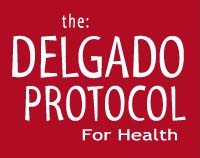Cortisol Deficiency: How to Prevent This Hidden Epidemic From Robbing You of Your Health and Vitality
We experience more pressure and stress than ever before in history and cortisol is the hormone that helps us to deal with all those stressors. Unfortunately, our bodies were not designed to cope with such chronic high-stress levels and many of us have depleted our cortisol reserves as a result. A cortisol deficiency will rob you of your wellbeing and leave you feeling mentally, physically and emotionally drained. Below is everything you need to know about cortisol, how to diagnose a cortisol deficiency, and how to restore cortisol levels naturally, so you can get back to living the healthy, vibrant life that you deserve.
Cortisol Basics
Cortisol is a life-sustaining steroid hormone that is produced by the adrenal glands. Cortisol is often referred to as the stress hormone because it prepares the body to fight-or-flight when there is a perceived threat. Cortisol also plays an important role in: regulating metabolism, blood sugar levels, immune responses, and blood pressure; in central nervous system activation, in memory formation, and in controlling inflammation. Cortisol levels naturally fluctuate throughout the day and in a healthy person, they are highest in the morning and lowest right before bed. In a person who is cortisol deficient, fluctuation patterns are often reversed, with cortisol being highest at bedtime, which interferes with sleep, and lowest in the morning, which makes it hard to ‘get going’.
Cortisol and Energy
Cortisol plays a major role in energy — when cortisol levels are optimal, you will feel naturally energized and you won’t require caffeine or other stimulants to get through the day. When cortisol levels are low on the other hand, mental and physical fatigue can take over your body, and simply getting out of bed can become a challenge. People with low cortisol levels typically rely on stimulants in order to stay active and alert throughout the day, and the stimulants deplete cortisol levels further, creating a vicious cycle that is hard to break.
Symptoms and Diagnoses of Cortisol Deficiency
Signs and symptoms of a cortisol deficiency include: low blood pressure, weight loss, fatigue, fainting, reduced appetite, nausea, gastrointestinal pain, irritability, depression, emotional hypersensitivity, inability to deal with stress, heart palpitations, muscle weakness or pain, salt cravings, and for women, body hair loss and low libido. If you suspect that you have a cortisol deficiency you can have a lab perform a 24-hour urine cortisol test or purchase a 4-point saliva test. These tests are superior to blood tests because blood tests only measure cortisol at one point in the day, and cortisol is constantly fluctuating. Also, some people experience stress from blood tests, which causes the body to release cortisol, and skews the test results.
Boosting Cortisol and Energy Naturally
Optimize Sleep Quantity
Getting enough high-quality sleep is essential for boosting cortisol — if you sleep well, everything generally gets better. Everyone has different sleep requirements, however somewhere between 7 and 9 hours of sleep is typically ideal, and it’s important that you go to bed and wake-up at the same time every day. Also, the earlier you go to bed the better — we’re designed to rise at sunrise and sleep at sunset, this is our natural biorhythm, and if you try to fight nature you will lose.
Enhance Sleep Quality
Sleep quality is even more important than quantity, and you should avoid stimulants and alcohol, in order to optimize sleep quality. It’s also important to sleep in a quiet, dark, cool, electronic-free environment, and avoid strenuous exercise and spicy foods before bed. If you have trouble falling asleep engage in a relaxing activity for 30-60 minutes before going to sleep. Some good examples include: taking a hot bath, sipping on chamomile or valerian tea, meditating, deep breathing, journaling, practicing progressive relaxation, or doing gentle yoga. A few drops of lavender essential oil on your pillowcase can also help promote a peaceful night’s sleep.
Incorporate Diet and Supplement Therapy
Start by consuming a whole foods based diet with plenty of vegetables, fruits, and whole grains. Avoid flour and sugar, and incorporate citrus fruits into your daily diet because they breakdown enzymes that interfere with cortisol production. Augment this diet with an adrenal gland supporting supplement. Look for one that contains herbs such as licorice, grapefruit seed extract, and ashwagandha; these herbs help to nourish the adrenal glands and support healthy cortisol production. Adrenal cortex is also highly beneficial, it is extracted from the adrenal glands of animals, and it is a natural source of hydrocortisone. Adrenal DMG is a proprietary supplement that contains a potent blend of adrenal-nourishing herbs and a medicinal dose of adrenal cortex http://www.delgadonaturals.com/adrenal-dmg/.
*If you’re severely cortisol deficient you may also benefit from short-term, low-dose therapy with prescription hydrocortisone, but this should only be done under the recommendation and supervision of a healthcare specialist.
Bonus Tip for Fighting Fatigue
The thyroid gland also plays an integral role in energy, and many people with low cortisol have an underactive thyroid gland because cortisol is required for the thyroid to work efficiently. Unfortunately, many underactive thyroid sufferers remain undiagnosed because physicians typically only test thyroid stimulating hormone (TSH) levels and if TSH is in the normal range, then the thyroid is diagnosed as healthy. If you feel fatigued despite taking the above steps to increase your cortisol levels then you should request an advanced thyroid panel which includes TSH, free T3, free T4, reversed T3, and thyroid antibodies. If an underactive thyroid is identified lowering thyroid antibodies with high-doses of bromelain and supplementing with desiccated thyroid can help restore thyroid health.



